This week (25th-29th November), the mine action community is attending the all-important Fifth Review Conference of the Anti-Personnel Mine Ban Treaty in Siem Reap, Cambodia.
This landmark treaty, adopted in 1997, aims to end the suffering and devastation caused by anti-personnel landmines.
Some 164 countries have now adopted the treaty, and the Conference will bring together states, international organisations, and campaigners to share progress, tackle challenges and explore solutions.
Discussions will spotlight topics like climate change impacts, gender and diversity, migration, landmines in active conflict zones, and funding gaps for the sector.
Twenty-five years ago, landmines killed or maimed more than 20,000 people annually – mostly civilians. Thanks to the treaty, countless civilian lives and limbs have been spared.
But with rising conflicts around the world, a global increase in casualties, and the continued use of landmines in multiple countries, there is still much work to be done.
We’re calling on those that have adopted the treaty to reaffirm their commitment to a landmine-free world, and on all states not yet party to join the Convention.
The Fifth Review Conference in Siem Reap this week is a critical opportunity to come together, address challenges, and work purposefully towards that goal.
Learn more about the review conference and the life-saving treaty:
Stay tuned for updates from our team in Siem Reap below.
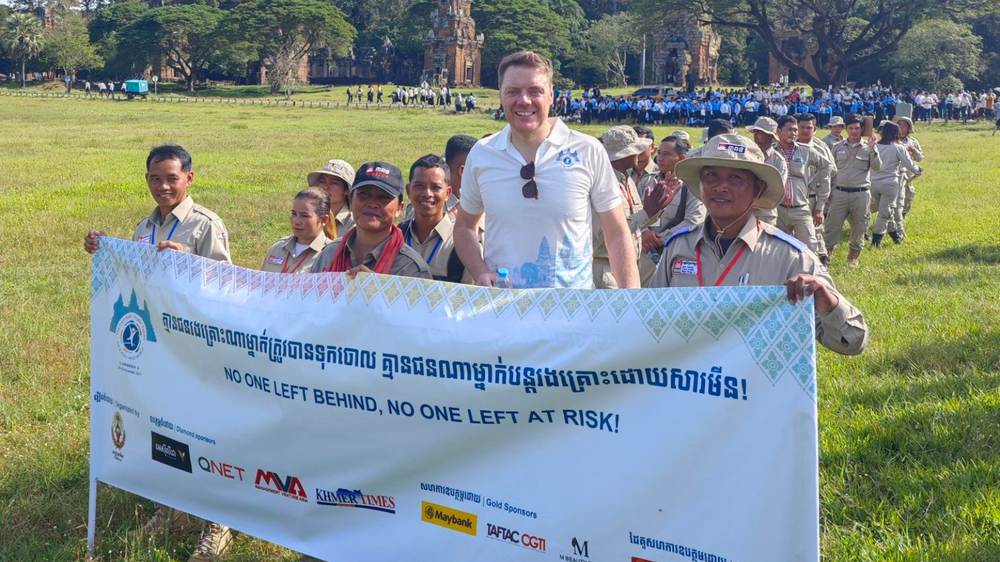
Sunday 24th November
On the eve of the conference, MAG colleagues joined the March for a Mine-Free World.
We walked with other organisations, activists and landmine survivor networks to celebrate collective efforts to raise awareness of the impact of landmines.
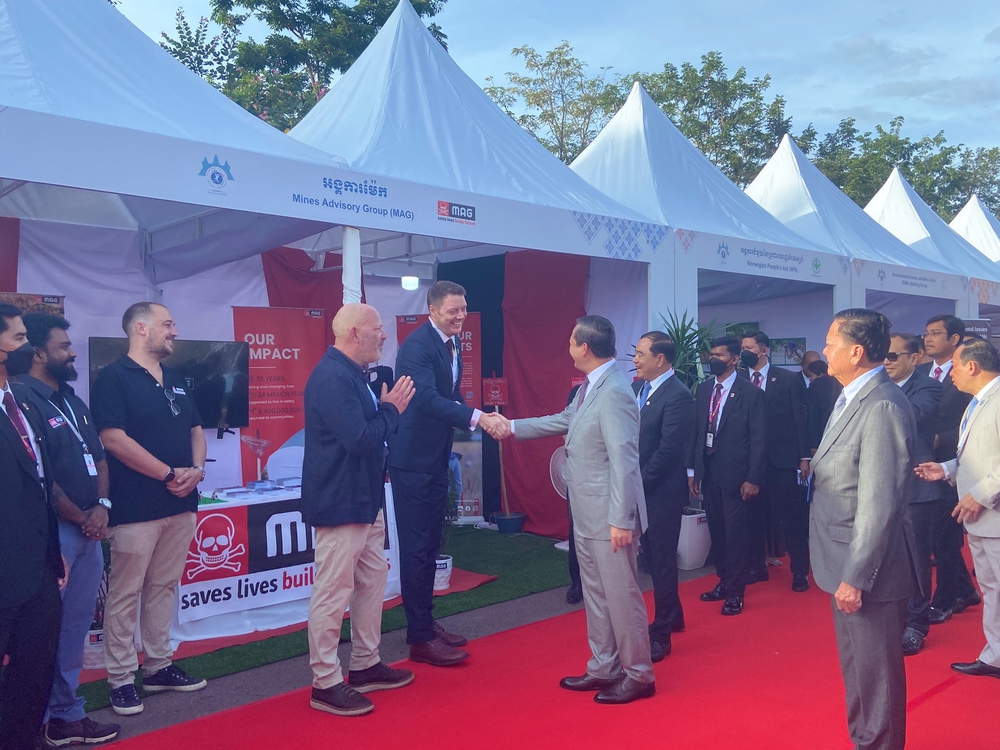
Monday 25th November
It was a pleasure to welcome the Prime Minister of the Kingdom of Cambodia, Hun Manet, to the MAG exhibition stand on the first morning of the conference.

Monday 25th November
MAG and The HALO Trust hosted a joint exhibition to celebrate women in mine action.
The event featured photos by six talented female photographers, showcasing the stories of our staff in Cambodia, Iraq, SriLanka, Ukraine and Zimbabwe.
To open our event, MAG's Head of Policy and Strategic Partnerships, Director of Strategy for The Halo Trust, and the British Ambassador to Cambodia, Dominic Williams, all highlighted the importance of recognising the vital contribution of women to humanitarian mine action.
Since early this year, we’ve worked with women photographers to document the experiences of our female staff and the role of women in rebuilding communities after conflict.
Explore their work and read stories from our female staff here.
Photographer Neak Sophal shares her experience in Cambodia.
.

Tuesday 26th November
At the Siem Reap Summit this week, we are reconnecting with existing friends and partners, and sharing MAG’s latest news and resources at our exhibition stand.
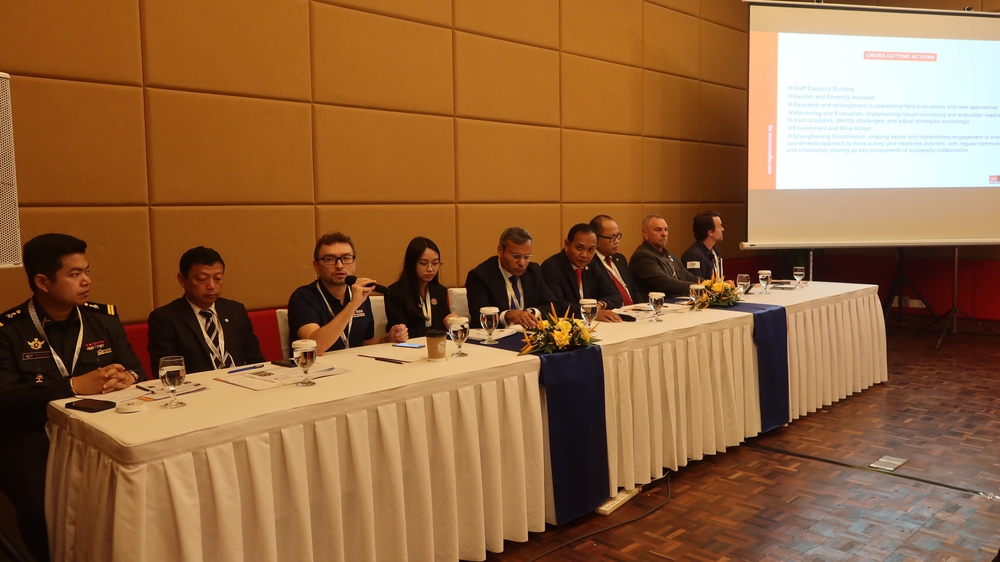
Tuesday 26th November
“Our staff is our pride.”
MAG's Country Director for Cambodia, Alexey Kruk, joined a panel on mine action in Cambodia to give an overview of MAG’s clearance and risk education activities and the achievements of our dedicated team.

Wednesday 27th November
MAG's International Policy Manager, Riccardo Labianco, delivered a statement to the Fifth Review Conference, emphasising the importance of an approach that is tailored to the needs of different communities, including those in active conflicts.
Read the full statement here.
Our Head of Programmes Performance and Learning Unit, Sebastian Kasack, also gave a statement on behalf of the explosive ordnance risk education advisory group, encouraging States Parties to appoint a risk education coordinator; separate risk education from clearance in agendas; and increase sustainable funding for this work.

Thursday 28th November
MAG hosted a side event with The HALO Trust, where we discussed pathways to sustainable completion.
It was an opportunity to draw out diverse experiences of different states implementing the Mine Ban Treaty, from conflict-affected to post-completion.
We heard from Kalabi Situmbeko, Permanent Secretary of the Ministry of Foreign Affairs and International Cooperation of the Republic of Zambia.
She shared a reminder that completion alone is not the objective – states should focus on all key milestones in the process.
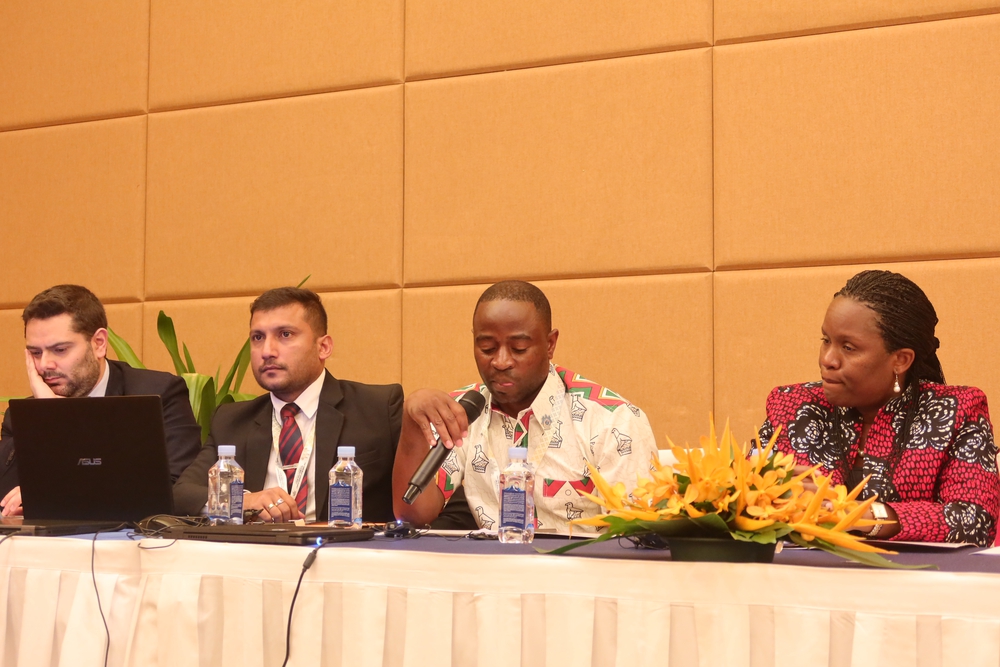
Captain Patson Mandaba, from the Zimbabwe Mine Action Centre, underlined the importance of both strong national capacity and international cooperation.
He also discussed challenges, such as when natural disasters disrupt plans, and difficulties in securing funding to mine action.

“Completion is not a race”
Susiku Akapelwa, Director of the Zambian Mine Action Centre, shared valuable insights and best practices as a state that has reached completion, and the role of the community at this stage.
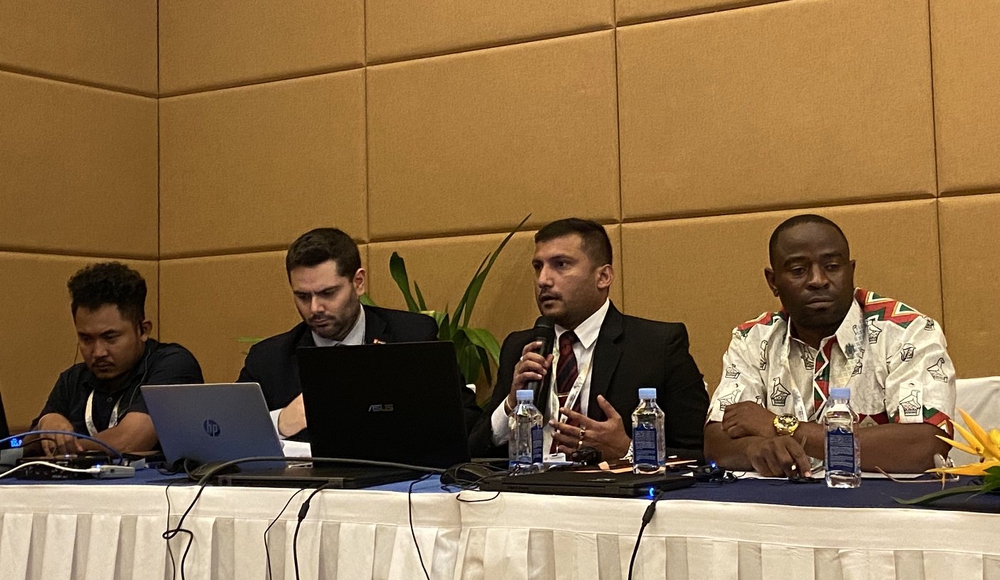
Speaking on behalf of the Sri Lankan Mine Action Centre, Rajitha Ambalampitiya shared their completion survey dashboard and emphasised the role of information management in mine action.
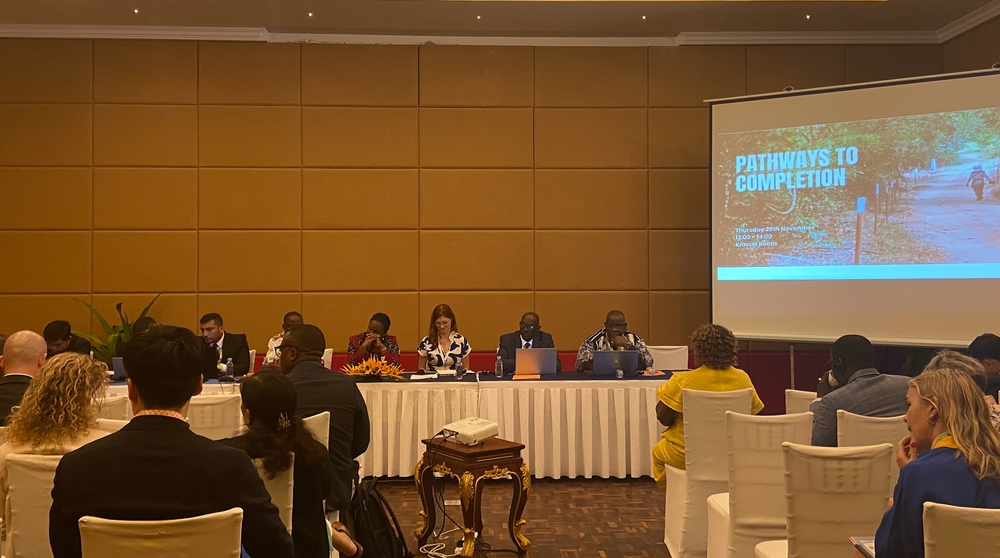
Speaking about the context in Burkina Faso, Colonel Major Sanou shared experiences from a State Party that is reporting under Article 5 of the Mine Ban Treaty for the first time, and the importance of partnership between government and communities.
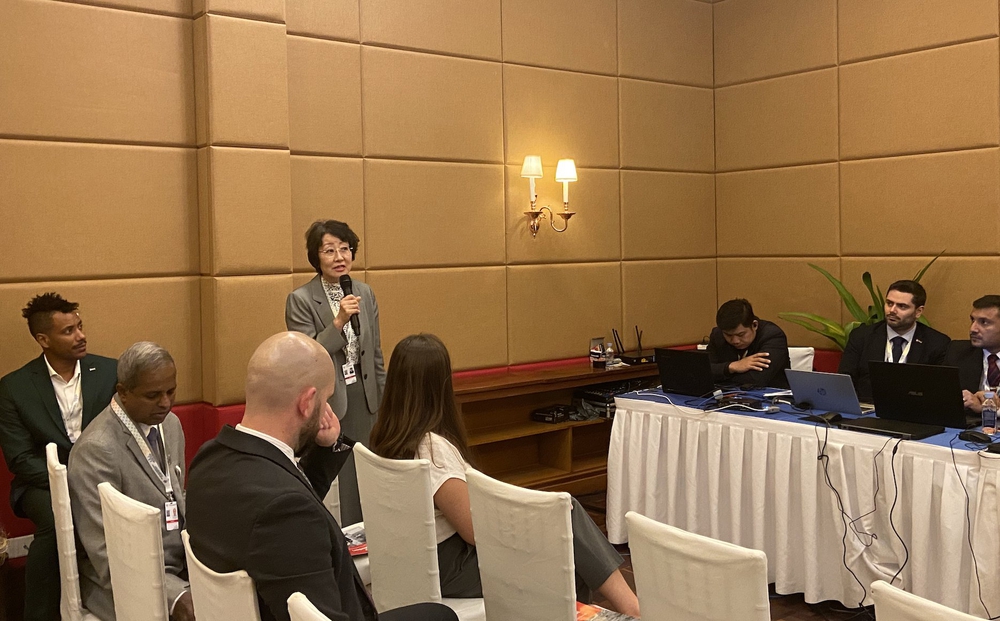
We were delighted that Ambassador Tomiko Ichikawa, Permanent Representative of Japan to the Conference on Disarmament, gave the closing remarks for our side event.
Ahead of the Fifth Review Conference, MAG published two new papers that provide important reflections and considerations on the 25 years since the treaty entered into force – read them here.
Friday 29th November
As the Fifth Review Conference concludes, MAG’s Director of Policy and Strategic Partnerships, Josephine Dresner, highlights the critical importance of strengthening this life-saving treaty and reaffirms MAG’s commitment to supporting its progress.
MAG CEO Darren Cormack also reflects on MAG's engagement at the five-day conference.
An important week for the sector as we continue to work towards a landmine-free world.





